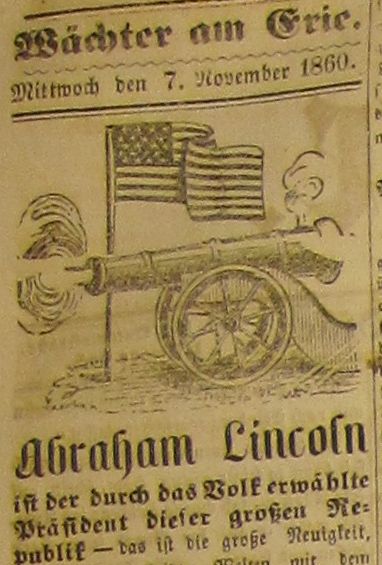At our house, we’ve been losing sleep over the upcoming election. So much seems at stake. Education and health care and climate change. The people v. corporations. Supreme Court nominees.
Meanwhile in my writing life, I’m perpetually trawling the 19th century, fact-checking, conjuring three-dimensional imagery from dim historical records. On a recent revisit to the subject of Abraham Lincoln, some circumstances of the 16th president’s election and re-election campaigns reminded me of what we’re experiencing today with our 44th president:

–Lincoln was swept into office by a grass-roots uprising of the people, against the entrenched slavery of the Democratic Party–especially when it came to the issue of slavery in the territories and states then joining the Union. During a debate with Stephen Douglas, Lincoln put it thus: “[The issue of right and wrong] will continue in this country when these poor tongues of Judge Douglas and myself shall be silent. It is these two principles–right and wrong–throughout the world. They are the two principles that have stood face to face from the beginning of time, and will ever continue to struggle. The one is the common right of humanity, and the other the divine right of kings.” It seems to me, the “divine right of kings” is rearing its head once more in the concentration of wealth in the 2%, and in response, the Obama’s “Yes, we can” appeal to the people. Here’s a bit from Obama’s first election primary win “Yes We Can” speech: “We are looking for more than just a change of party in the White House. We’re looking to fundamentally change the status quo in Washington. It’s a status quo that extends beyond any particular party and right now that status quo is fighting back with everything it’s got, with the same old tactics that divide and distract us from solving the problems people face, whether those problems are health care that folks can’t afford or a mortgage they cannot pay. So this will not be easy. Make no mistake about what we’re up against. We’re up against the belief that it’s all right for lobbyists to dominate our government, that they are just part of the system in Washington.”
–For his first term of office, Lincoln inherited from President Buchanan a country in a world of hurt–many Southern states had seceded even before the Lincoln inauguration. Obama did not exactly inherit a Civil War from President Bush, but he did inherit wars in Iraq and Afghanistan, a recession, a major budget deficit, and a House and Senate divided.
–When it came time for re-election, in spite of Lincoln’s perseverance in the face of adversity, his party members did not have the same fervor and glee as the first time around. It had been a rough four years. In fact, they were nervous and worried, so worried some broke ranks, holding their own convention, nominating General Fremont instead of Lincoln (a position from which they later backed down). This time around for Obama, Democrats also seem less zealous, more nervous and apologetic. Where are all the bumper stickers and yard signs we saw during the first campaign?
On the other hand, a major difference between the Lincoln era and the Obama era has to do with the judicial branch of government. While in office, President Lincoln had the opportunity to appoint Salmon P. Chase, former Governor of Ohio and the Secretary of the Treasury, as the Chief Justice of the Supreme Court. But the days of non-lawyers on the Supreme Court are long gone. At recent Seattle Arts and Lectures event, Jeffrey Toobin spoke about the Democratic/Republication balance on the Supreme Court. Toobin pointed out that the president of the next term in office will get to choose one, if not two, justices for the Supreme Court. Toobin said if Obama is the president, we might see the first Asian American justice on the Supreme Court. He also noted that Romney’s chief Supreme Court advisor is Robert Bork, an arch conservative who did not pass muster with Congress when Reagan named him to the Court in the 1980s.
As I said, we’re losing sleep over here. After all, I’m a nervous Democrat. In the interests of the people, and this bipartisan Union, Barack Obama has my vote.

2 responses to “Election history: Lincoln and Obama”